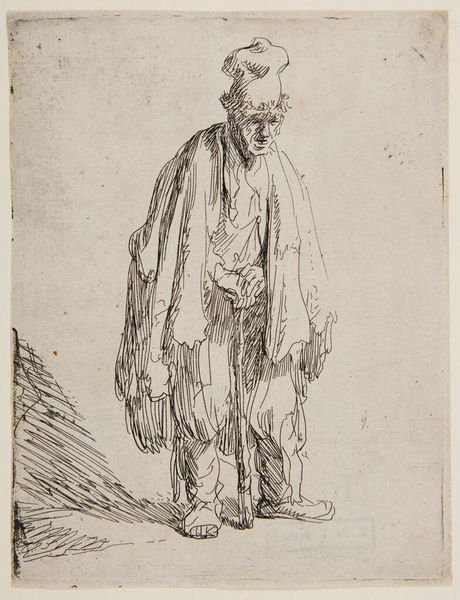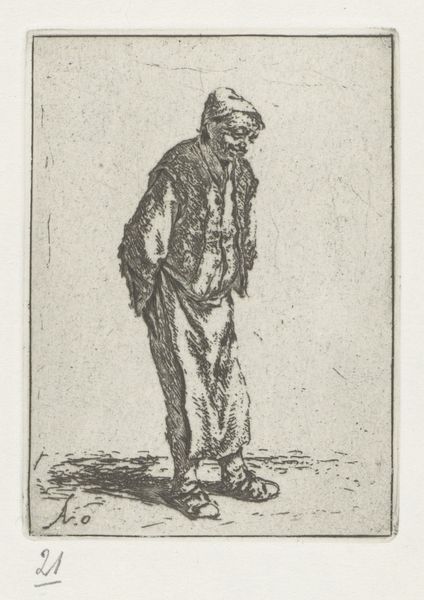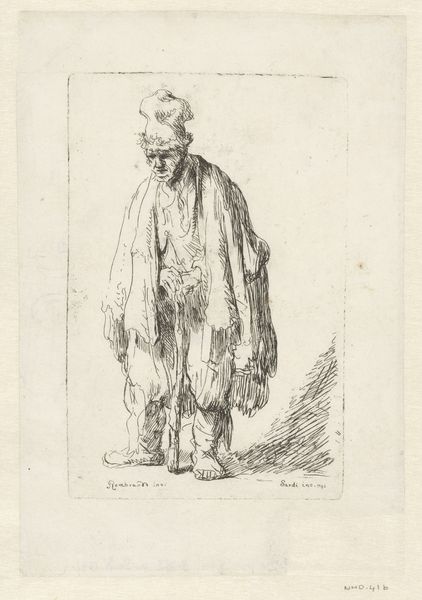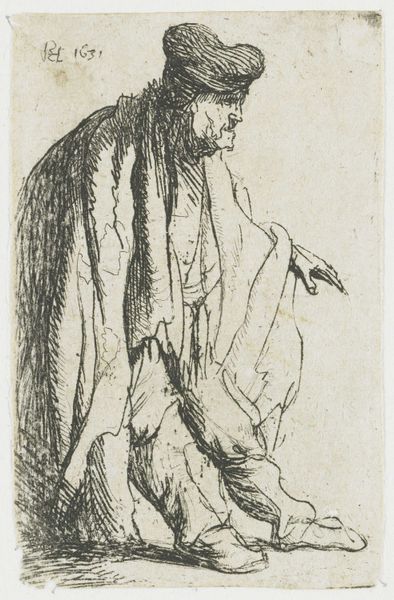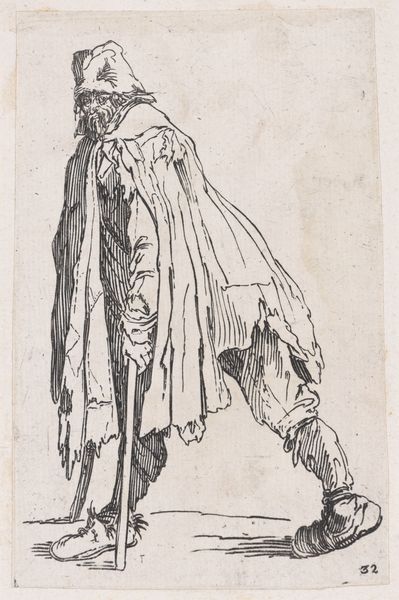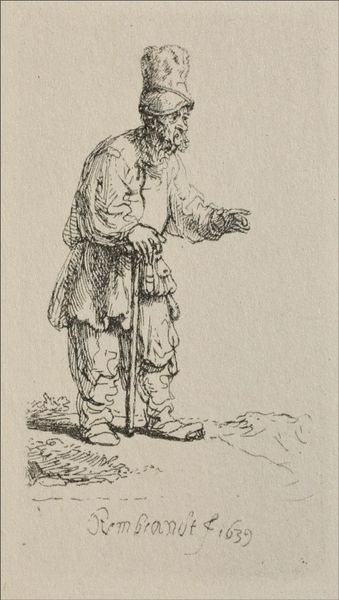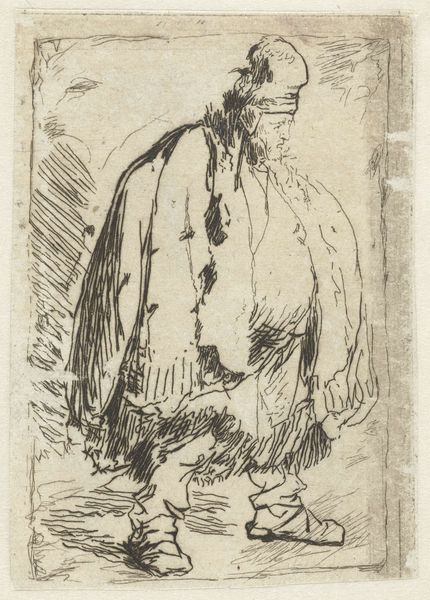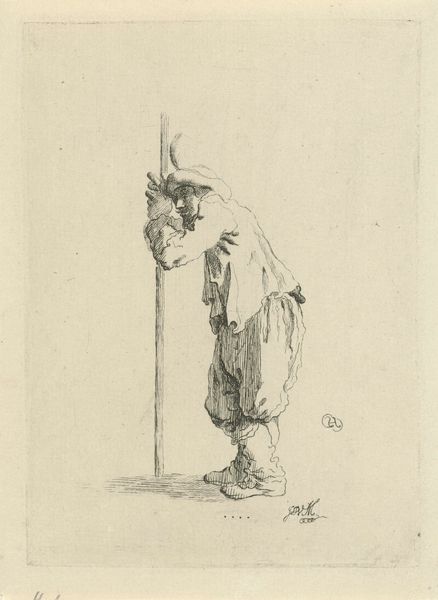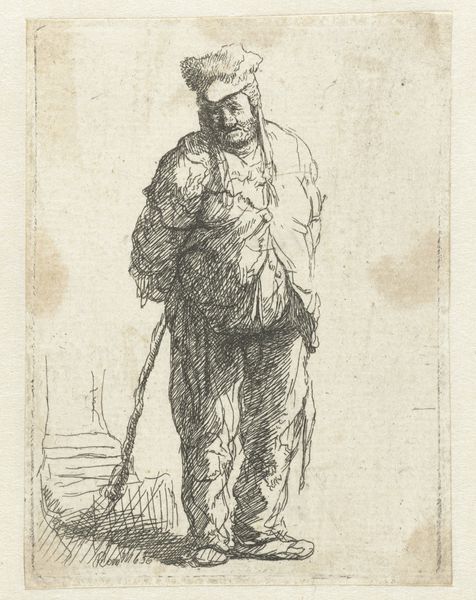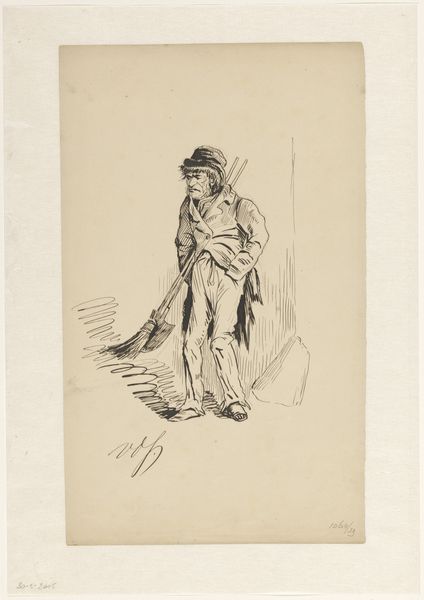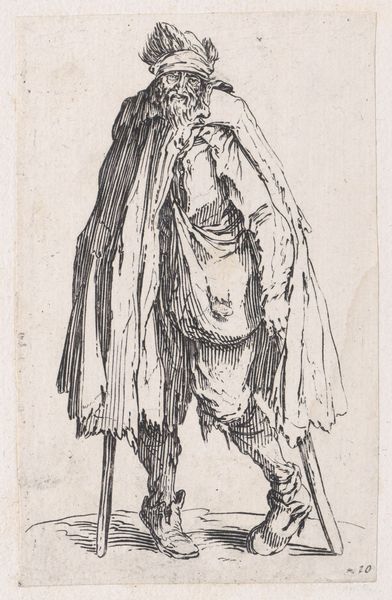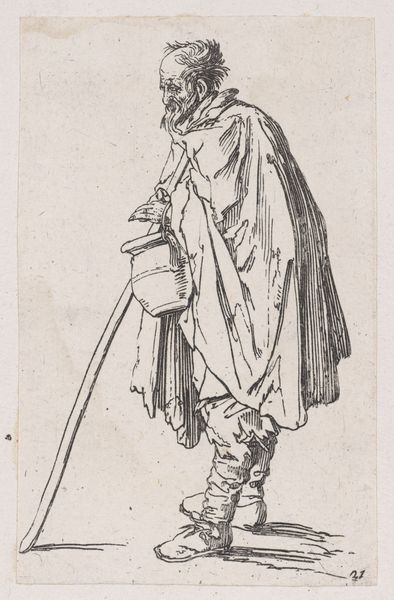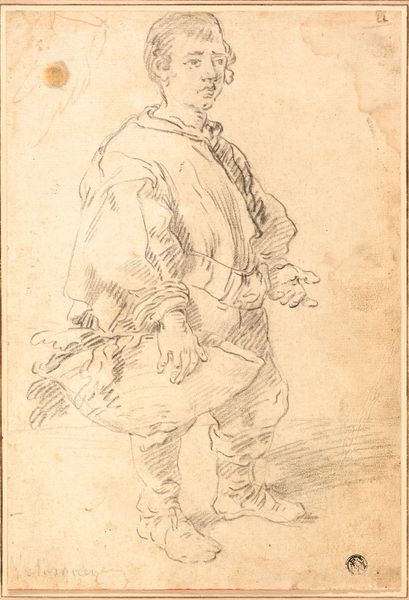
drawing, print, etching
#
portrait
#
drawing
#
baroque
#
dutch-golden-age
# print
#
etching
#
figuration
#
line
#
realism
Dimensions: 16 x 12 cm
Copyright: Public Domain
Rembrandt van Rijn created this etching of a beggar with a stick sometime in the mid-17th century. The image resonates with the social realities of the Dutch Golden Age. While the Netherlands prospered through trade and colonialism, poverty remained a stark reality for many. Rembrandt, working in this context, often depicted ordinary people, including the poor and marginalized, in his art. What's striking is the level of detail and empathy Rembrandt brings to this depiction, elevating the beggar from a stereotype to an individual worthy of attention. The beggar's worn clothes and weary stance tell a story of hardship and resilience. Rembrandt’s choice to represent a beggar engages with the period’s changing attitudes toward charity, poverty, and social responsibility. As historians, we can delve deeper into Rembrandt's world through archival research, examining contemporary attitudes toward poverty, charity, and social welfare. Art, like this etching, is contingent on social and institutional context.
Comments
minneapolisinstituteofart about 2 years ago
⋮
Rembrandt's Beggar in a High Cap Leaning on a Stick takes the work of Jacques Callot as a point of departure. Callot treated similar subjects on similar scale. Rembrandt added reckless energy to the calligraphic line employed by Callot. He provides us with a less sanitized view of the man, while also endowing him with individual humanity. The image appears completely spontaneous and unedited, as though we were looking at a page from Rembrandt’s sketchbook. However, closer observation reveals that he rethought his drawing. Originally the shadow beside the man would have impinged more fully on his form, but the truncated strokes of the zigzag lines tell us that Rembrandt partially masked his work with varnish before biting the plate in acid. In doing so, he released the man from the shadow to increase his monumentality.
Join the conversation
Join millions of artists and users on Artera today and experience the ultimate creative platform.
